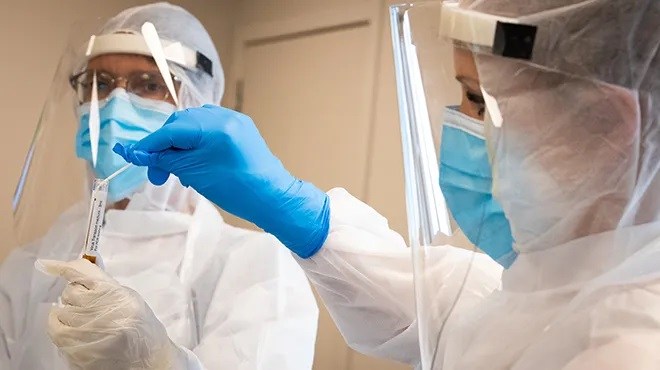A group of more than 250 scientists, mainly from Europe, have published an open letter in the medical journal The Lancet calling for “a strong, coordinated response” from the EU authorities to the Covid-19 crisis.
Belgian signatories include prominent figures like Emmanuel André (KU Leuven), Erika Vlieghe and Herman Goossens (UAntwerp) and Geert Molenberghs (UHasselt).
“Across Europe, the COVID-19 pandemic is causing excess deaths, placing a burden on societies and health systems and harming the economy,” the letter reads. “European governments have yet to develop a common vision to guide the management of the pandemic.”
Without joint action, the letter warns, further waves of infection can be expected, with consequent damage to health, society, jobs, and businesses. Since the EU enjoys open borders, no single country cannot keep the number of cases down.
“We therefore call for a strong, coordinated European response and clearly defined goals for the medium and long term. Achieving and maintaining low case numbers should be the common, pan-European goal.”
The letter offers a list of reasons why low case numbers should be a principal goal.
• Low case numbers save lives and the suffering brought about by Covid. They also ensure that medical resources are not diverted away from other important case.
• Low case numbers save jobs and businesses, and economies can recover rapidly if the case load is reduced, as has been shown in Australia and China.
• Low case numbers help slow the spread of the disease. Easing restrictions, as many have called for during this holiday season, “is a short-sighted strategy that will lead to another wave, and thus to higher costs for society as a whole.”
In addition, test-and-trace systems work more effectively with low numbers to mitigate the spread of the virus; the so-called herd immunity is not a viable option; and lastly, low numbers make planning possible, without the need for sudden and marked policy changes, such as have been seen in the UK in recent days.
“It is crucial to communicate the goal and the advantage of low case numbers clearly to foster public cooperation. The success of these measures depends crucially on the cooperation and involvement of the public,” the letter concludes.
“We urge governments throughout Europe to agree on clearly formulated common goals, coordinate their efforts, develop regionally adapted strategies to reach the goals, and thereby work resolutely towards low case numbers.”
Alan Hope
The Brussels Times

